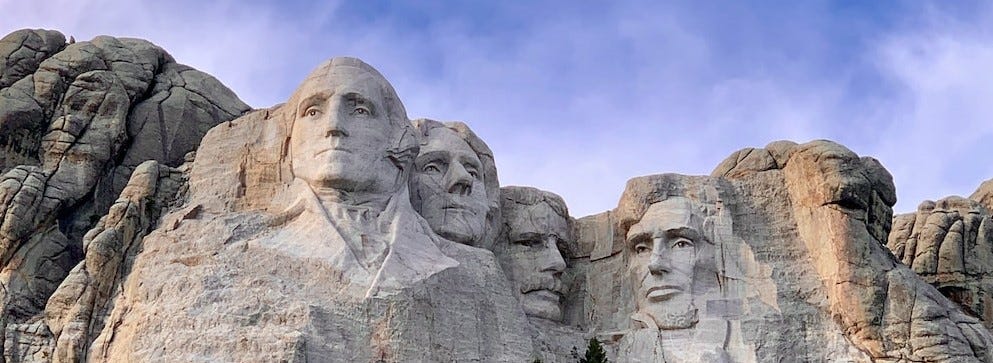James Simon’s solid work of the same title examines the relationship between Thomas Jefferson and John Marshall, which was as contentious as one would expect a rivalry between a staunch state’s rights proponent and a Federalist could be. It also serves as a lens through which to view the national dilemma as expounded by Alexander Hamilton, John Adams, and others. Both Jefferson and Marshall were right of course, and both were wrong; a lesson we would do well to take to heart today. It seems not much has changed since the founding days other than the names of the protagonists. The only real difference between now and then is our ubiquitous and nearly inescapable news cycle, which serves only to divide and embitter, not inform. We are a mess, something they were acquainted with from the earliest days of the nation.
There is one other difference as well, I think. Yes, there were serious disagreements and dislikes among the Founders, and they often expressed these with great vitriol. They battled for their beliefs but were united in purpose: to protect and nurture the young nation, setting it on course for what they knew then would be a consequential future. It wasn’t easy, but their focus was on what they believed to be right causes and not primarily on personal advancement and glory, a difference to today which matters. There was a gravitas, humility, respect, and honor that is strikingly absent today. Importantly, they recognized their condition and sought ways to repair relationships. They were not always successful, but it is something they did better than we do in our day. They knew the condition the nation’s condition was in and took it to heart.
“There is so much in the political world to wound honest men, who have honorable feelings, that I am disgusted with it and begin to see things, and indeed human nature, in a much more gloomy medium than I once thought possible.” Supreme Court Chief Justice John Marshall
What kind of nation, indeed? The question is once again before us. As we enter the grittiest part of the campaign season it will be easy to become exhausted by its unceasing ugliness. We, as citizens, must take on the role of leaders, requiring more and better of those who vie for our vote. We do this by being serious about this serious decision. We do this by doing our own thinking, testing and proving our own beliefs and values, and engaging as an involved electorate in respectful and honorable debate among ourselves and with candidates, and voting our own sympathies independent of political machines that attempt to force us into a monolithic version of themselves. We do it by trusting our own good sense.
We are at a tipping point and seemingly without the kind of thoughtful reflection, humility, and dialog that served so well then. The two sides did not agree on much, and neither do we. But … they found a way, and that may be their biggest legacy, one we should strive to duplicate.
What Kind of Nation? by James F. Simon

